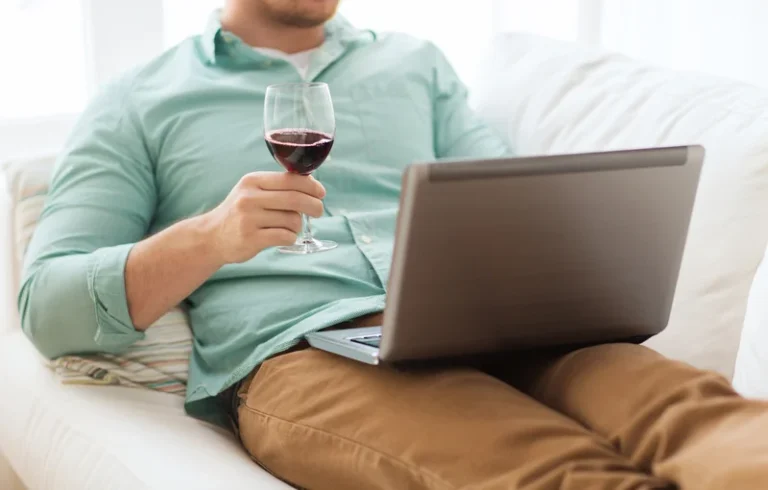
Embrace the opportunity to experience social interactions in a different light and create meaningful relationships that go beyond alcohol. Seek support and connect with like-minded individuals who share your interest in alcohol-free socializing. Look for local groups or online communities that being sober around drinkers promote sober social activities or host alcohol-free events. Surrounding yourself with a supportive community can provide encouragement, inspiration, and a sense of belonging. If you want to support and honor your friend’s sobriety, the safest choice is not to drink alcohol in front of them.
- In addition to this helpline, numerous online platforms offer addiction recovery services.
- It’s likely your doctor will order some bloodwork, which can be the start of your path to physical recovery.
‘Sober Curious’: What Does It Mean to Explore Life Without Alcohol?
But also, don’t be afraid to put yourself out there and get involved in activities around your community. And while these things might sound serious and scary, it’s important to note that it’s one piece of a larger puzzle. It’s not as simple as “getting out there” and “trying something new.” It’s hard to do that when you suffer from extreme depression and anhedonia. The very things you should be doing to feel better require a level of motivation you might not be able to fathom.

How the Buddy System Aids Addiction Recovery
Getting drunk did not magically change the dynamics of that situation. We were all just sitting around and getting drunk, perfectly content to not really do anything together. Sometimes we would watch a show, but even that become untenable for me after a couple of drinks because I did not have the attention span for it.
Start journaling.
One common mistake for those who are new to alcohol and drug recovery is substituting a new compulsive behavior for their old one. People new to recovery can find themselves approaching their new diet, exercise program, job, and even participation in support groups with a compulsion that echoes addiction. Shame is having negative beliefs about yourself and your self-worth. Guilt is having negative feelings about your past behavior. People in recovery can experience a lot of shame simply for having become addicted in the first place. Many people who misuse alcohol or drugs have trouble dealing with anger.
How to stop drinking
It’s evidence-based, cost-effective treatment that gets results. If you invite your newly sober friend somewhere where people will drink alcohol, or if you choose to drink around your friend, be considerate. Sometimes people feel like they are abandoning their family, friends, and loved ones when they begin their recovery journey. It’s ok to miss these people and grieve the loss of these https://ecosoberhouse.com/ relationships. Six months without alcohol is when you can begin to see your immune system optimizing and fighting the good fight again, though depending on the time of year and your environment, you might not immediately notice. If it’s winter, you may notice fewer colds than in the past, but in warmer months, the changes may be more subtle, but that doesn’t mean they aren’t there.
By Buddy TBuddy T is a writer and founding member of the Online Al-Anon Outreach Committee with decades of experience writing about alcoholism. Because he is a member of a support group that stresses the importance of anonymity at the public level, he does not use his photograph or his real name on this website. Once you do return to work, it’s important to create a budget and take steps to safeguard yourself as work stress can be a relapse trigger. Having a chaotic or disorganized lifestyle can also hinder your recovery. It’s important to develop a structured daily and weekly schedule and stick to it. For example, you may have developed a co-dependent relationship, or a family member, friend, or employer may have been enabling you without even knowing it.
- It’s been over six years since I first started seriously questioning my relationship with alcohol and considered a life without it.
- When I finally walked away from booze at 34, my life opened up.
- If you quit drinking and experience any new or worsening mental health symptoms, please consider therapy.
- When you begin to view your negative thoughts and feelings as problems to be solved rather than the embodiment of who you actually are, you liberate yourself.
- Helping others actually boosts our own mental health and feelings of self-worth.
Finding Treatment for Alcoholism

That being said, drinking FOMO is real and must be dealt with. Sometimes admitting the truth to yourself is the first step. Alcohol robs you of the ability to feel naturally motivated and inspired. When serotonin and dopamine levels are low, we become less motivated and less interested in our surroundings. To unpack some of the underlying reasons you feel bored right now, it helps to understand what alcohol does to your brain. For example, if you value being an effective and helpful employee at work, how does alcohol get in the way of that?
Alcohol addiction and rehab

If PAWS is severe or if you’re experiencing prolonged symptoms, a medical professional can help you work through them and remain in recovery without relapse. The symptoms involved in PAWS can be a barrier to recovery if you’re not careful. In addition to being able to recognize them, it’s important to know when to seek help. Depending on the type of dependency, PAWS can last from six months to two years after you stop using drugs or alcohol.
- Chasing the adrenalin that comes from a new experience or a thrilling physical activity induces a natural high.
- Only once you have become a stronger, better version of yourself will you be able to feel comfortable in any environment, including your old one.
- Just like any other illness from which people can suffer, it is ultimately the responsibility of the individual themselves to learn about how to manage the illness and keep it in remission.
- These professionals offer evidence-based personalized treatments tailored to individual needs and are equipped to provide the support needed during tough times.
- However, when it has happened, I have to speak up to point out that I didn’t drink and I’m not subsidizing their drinking.
Exploring Fun Activities Without Involving Alcohol
“You won’t have the hangover in the morning. Maybe when you drink too much you behave like a fool, so your reputation and self-esteem will be intact the next morning.” This tactic won’t work for everyone, and its success depends on your comfort level around people who are drinking. “Some people do find a positive role in [transforming themselves from the drinking buddy to the designated driver],” Willenbring says.

Practical Guide: How to Stay Sober Around Drinkers
- One patient told me that his father — who he knew liked a drink — always abstained when they were together in drinking situations out of solidarity and support for his son.
- Plenty of people can’t pick up sobriety and safely set it aside later, no matter how tough it gets.
- Once you can understand these and learn to internalize them in your daily life, saying no to a drink from your friends will be easy.
And when you can’t come up with an explanation, you feel confident enough to stand by. But they don’t show you the hangovers, vomit, financial ruin, regrets, and fights. And although you know these things happen when you drink, you still believe that alcohol will somehow cure boredom and make you have more fun than if you were sober. Soon, drinking became the only way I knew how to connect with people.
